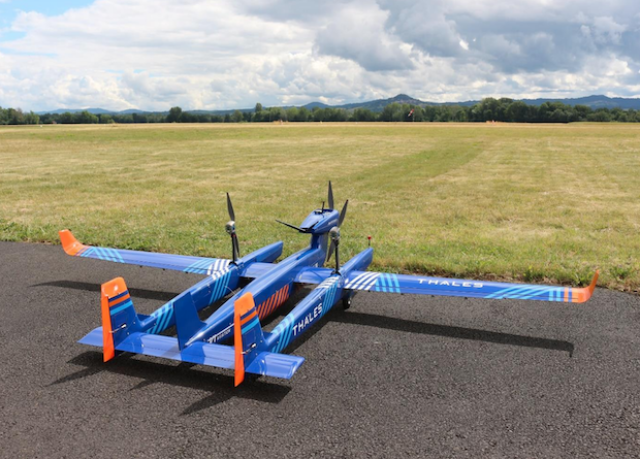The French company Thales has started flight tests of a prototype UAS 100 drone with a flight range of more than a hundred kilometers. It is designed for surveillance, search and rescue and military operations. The company claims that the UAS 100 was created in accordance with European standards for future flights of light drones over residential areas.
Last year, the European Aviation Safety Agency proposed conditions for the certification of unmanned aerial vehicles in high-and medium-risk situations. These include, in particular, flights over residential areas. These recommendations apply to all drones with a maximum take-off weight of up to 600 kilograms that are not intended for transporting people.
According to the classification of the international association UVS International, drones weighing from 50 to 250 kilograms usually have a range of 30 to 70 kilometers. But some companies are developing devices whose range goes beyond this class. For example, the Slovenian Pipistrel is working on the Nuuva V20 project, which with a mass of 100 kilograms can fly up to 300 kilometers.
The French company Thales announced the first flight of a prototype UAS 100 drone with a flight range of more than a hundred kilometers on July 7. She claims that the device already meets European standards for future flights of light drones over residential areas. The device is suitable for surveillance, search and rescue and military operations.
The prototype is half as small as the final version of the UAS 100, the first flight of which is scheduled for the second half of 2022. It will be able to fly even further — at a distance of about 200 kilometers and carry up to 10 kilograms. At full scale, the wingspan of the UAS 100 will be 5.4 meters. The mass of the drone is not reported, but it is indicated that it belongs to the category of light. It will be driven by two electric motors and an internal combustion engine. According to the company, this combination will increase the flight time and increase the resistance to failures.
The European Aviation Safety Agency also certifies passenger drones, such as Lilium and Volocopter. Earlier we wrote that their certification should be completed by 2025.
Vasilisa Chernyavtseva

